
The surprising story of Van Gogh's guardian angel
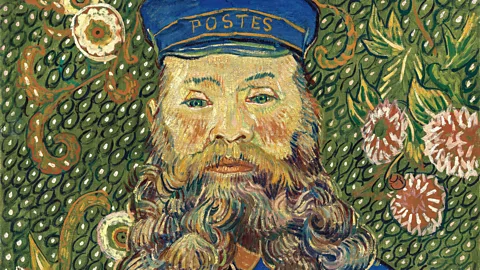 Courtesy Museum of Fine Arts, Boston(Credit: Courtesy Museum of Fine Arts, Boston)
Courtesy Museum of Fine Arts, Boston(Credit: Courtesy Museum of Fine Arts, Boston)At the toughest, most turbulent time of his life, the Post-Impressionist painter was supported by an unlikely soulmate, Joseph Roulin, a postman in Arles. A new exhibition explores this close friendship, and how it benefited art history.
On 23 December, 1888, the day that Vincent van Gogh mutilated his ear and presented the severed portion to a sex worker, he was tended to by an unlikely soulmate: the postman Joseph Roulin.
A rare figure of stability during Van Gogh's mentally turbulent two years in Arles, in the South of France, Roulin ensured that he received care in a psychiatric hospital, and visited him while he was there, writing to the artist's brother Theo to update him on his condition. He paid Van Gogh's rent while he was being cared for, and spent the entire day with him when he was discharged two weeks later. "Roulin… has a silent gravity and a tenderness for me as an old soldier might have for a young one," Van Gogh wrote to Theo the following April, describing Roulin as "such a good soul and so wise and so full of feeling".
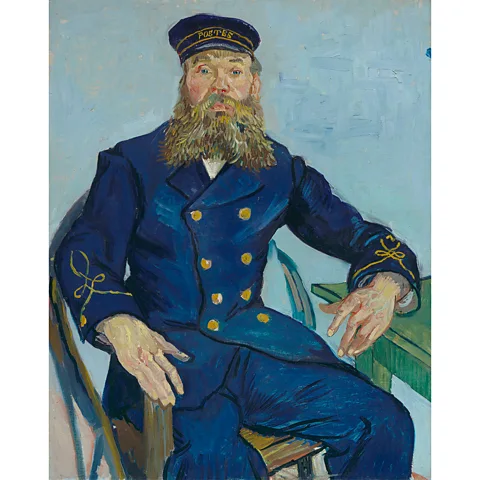 Courtesy Museum of Fine Arts, BostonVan Gogh's Postman Joseph Roulin, 1888 – Roulin was a close friend and loyal ally of the artist (Credit: Courtesy Museum of Fine Arts, Boston)
Courtesy Museum of Fine Arts, BostonVan Gogh's Postman Joseph Roulin, 1888 – Roulin was a close friend and loyal ally of the artist (Credit: Courtesy Museum of Fine Arts, Boston)Paying homage to this touching relationship is the exhibition Van Gogh: The Roulin Family Portraits, opening at the MFA Boston, USA, on 30 March, before moving on to its co-organiser, the Van Gogh Museum, Amsterdam, in October. This is the first exhibition devoted to portraits of all five members of the Roulin family. It features more than 20 paintings by Van Gogh, alongside works by important influences on the Dutch artist, including 17th-Century Dutch masters Rembrandt and Frans Hals, and the French artist Paul Gauguin, who lived for two months with Van Gogh in Arles.
Roulin wasn't just a model for Van Gogh – this was someone with whom he developed a very deep bond of friendship – Katie Hanson"So much of what I was hoping for with this exhibition is a human story," co-curator Katie Hanson (MFA Boston) tells the BBC. "The exhibition really highlights that Roulin isn't just a model for him – this was someone with whom he developed a very deep bond of friendship." Van Gogh's tumultuous relationship with Gauguin, and the fallout between them that most likely precipitated the ear incident, has tended to overshadow his narrative, but Roulin offered something more constant and uncomplicated. We see this in the portraits – the open honesty with which he returns Van Gogh's stare, and the mutual respect and affection that radiate from the canvas.
A new life in ArlesVan Gogh moved from Paris to Arles in February 1888, believing the brighter light and intense colours would better his art, and that southerners were "more artistic" in appearance, and ideal subjects to paint. Hanson emphasises Van Gogh's "openness to possibility" at this time, and his feeling, still relatable today, of being a new face in town. "We don't have to hit on our life's work on our first try; we might also be seeking and searching for our next direction, our next place," she says. And it's in this spirit that Van Gogh, a newcomer with "a big heart", welcomed new connections.
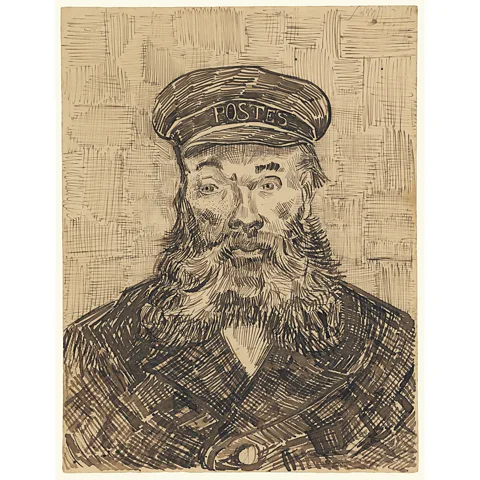 Courtesy Museum of Fine Arts, BostonA pen, ink and chalk portrait of Roulin, 1888, is among the exhibits in the show Van Gogh: The Roulin Family Portraits (Credit: Courtesy Museum of Fine Arts, Boston)
Courtesy Museum of Fine Arts, BostonA pen, ink and chalk portrait of Roulin, 1888, is among the exhibits in the show Van Gogh: The Roulin Family Portraits (Credit: Courtesy Museum of Fine Arts, Boston)Before moving into the yellow house next door, now known so well inside and out, Van Gogh rented a room above the Café de la Gare. The bar was frequented by Joseph Roulin, who lived on the same street and worked at the nearby railway station supervising the loading and unloading of post. Feeling that his strength lay in portrait painting, but struggling to find people to pose for him, Van Gogh was delighted when the characterful postman, who drank a sizeable portion of his earnings at the café, agreed to pose for him, asking only to be paid in food and drink.
Between August 1888 and April 1889, Van Gogh made six portraits of Roulin, symbols of companionship and hope that contrast with the motifs of loneliness, despair and impending doom seen in some of his other works. In each, Roulin is dressed in his blue postal worker's uniform, embellished with gold buttons and braid, the word "postes" proudly displayed on his cap. Roulin's stubby nose and ruddy complexion, flushed with years of drinking, made him a fascinating muse for the painter, who described him as "a more interesting man than many people".
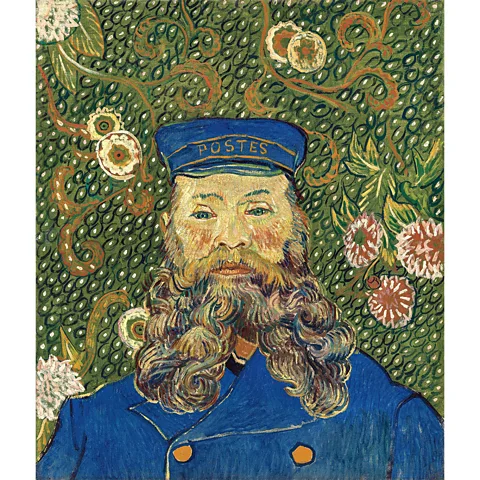 Courtesy Museum of Fine Arts, BostonPortrait of Joseph Roulin, 1889 – Van Gogh's paintings of the Roulin family were full of warmth and optimism (Credit: Courtesy Museum of Fine Arts, Boston)
Courtesy Museum of Fine Arts, BostonPortrait of Joseph Roulin, 1889 – Van Gogh's paintings of the Roulin family were full of warmth and optimism (Credit: Courtesy Museum of Fine Arts, Boston)Roulin was just 12 years older than Van Gogh, but he became a guiding light and father figure to the lonely painter – on account of Roulin's generous beard and apparent wisdom, Van Gogh nicknamed him Socrates. Born into a wealthy family, Van Gogh belonged to a very different social class from Roulin, but was taken with his "strong peasant nature" and forbearance when times were hard. Roulin was a proud and garrulous republican, and when Van Gogh saw him singing La Marseillaise, he noticed how painterly he was, "like something out of Delacroix, out of Daumier". He saw in him the spirit of the working man, describing his voice as possessing "a distant echo of the clarion of revolutionary France".
More like this:
• Five ways to spot a fake masterpiece
• Six Nordic paintings that help us rethink winter
• How to transform your home with art
The friendship soon opened the door to four further sitters: Roulin's wife, Augustine, and their three children. We meet their 17-year-old son Armand, an apprentice blacksmith wearing the traces of his first facial hair, and appearing uneasy with the painter's attention; his younger brother, 11-year-old schoolboy Camille, described in the exhibition catalogue as "squirming in his chair"; and Marcelle, the couple's chubby-cheeked baby, who, Roulin writes, "makes the whole house happy". Each painting represents a different stage of life, and each sitter was gifted their portrait. In total, Van Gogh created 26 portraits of the Roulins, a significant output for one family, rarely seen in art history.
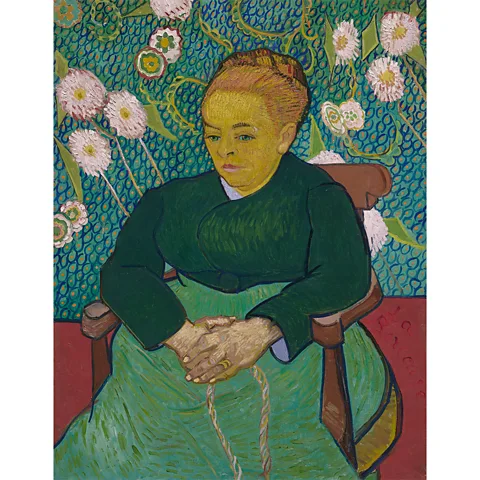 Courtesy Museum of Fine Arts, BostonRoulin's wife is portrayed in Lullaby: Madame Augustine Rocking a Cradle (La Berceuse) 1889 (Credit: Courtesy Museum of Fine Arts, Boston)
Courtesy Museum of Fine Arts, BostonRoulin's wife is portrayed in Lullaby: Madame Augustine Rocking a Cradle (La Berceuse) 1889 (Credit: Courtesy Museum of Fine Arts, Boston)Van Gogh had once hoped to be a father and husband himself, and his relationship with the Roulin family let him experience some of that joy. In a letter to Theo, he described Roulin playing with baby Marcelle: "It was touching to see him with his children on the last day, above all with the very little one when he made her laugh and bounce on his knees and sang for her." Outside these walls, Van Gogh often experienced hostility from the locals, who described him as "the redheaded madman", and even petitioned for his confinement. By contrast, the Roulins accepted his mental illness, and their home offered a place of safety and understanding.
The relationship, however, was far from one-sided. This educated visitor with his unusual Dutch accent was unlike anyone Roulin had ever met, and offered "a different kind of interaction", explains Hanson. "He's new in town, new to Roulin's stories and he's going to have new stories to tell." Roulin enjoys offering advice – on furnishing the yellow house for example – and when, in the summer of 1888, Madame Roulin returned to her home town to deliver Marcelle, Roulin, left alone, found Van Gogh welcome company.
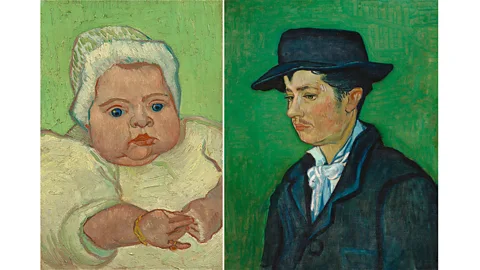 Van Gogh Museum, Amsterdam/Courtesy Museum of Fine Arts, BostonThe Baby Marcelle Roulin and Armand Roulin, both 1888 – Van Gogh created 26 portraits of the family (Credit: Van Gogh Museum, Amsterdam/Courtesy Museum of Fine Arts, Boston)
Van Gogh Museum, Amsterdam/Courtesy Museum of Fine Arts, BostonThe Baby Marcelle Roulin and Armand Roulin, both 1888 – Van Gogh created 26 portraits of the family (Credit: Van Gogh Museum, Amsterdam/Courtesy Museum of Fine Arts, Boston)Roulin also got the rare opportunity to have portraits painted for free, and when, the following year, he was away for work in Marseille, it comforted him that baby Marcelle could still see his portrait hanging above her cradle. His fondness for Van Gogh shines through their correspondence. "Continue to take good care of yourself, follow the advice of your good Doctor and you will see your complete recovery to the satisfaction of your relatives and your friends," he wrote to him from Marseille, signing off: "Marcelle sends you a big kiss."
Van Gogh lived a further 19 months, producing a staggering 70 paintings in his last 70 days, and leaving one of art history's most treasured legaciesVan Gogh's portraits placed him in the heart of the family home. In his five versions of La Berceuse, meaning both "lullaby" and "the woman who rocks the cradle", Mme Roulin held a string device, fashioned by Van Gogh, that rocked the baby's cradle beyond the canvas, permitting the pair the peace to complete the artwork. The joyful background colours – green, blue, yellow or red – vary from one family member to another. Exuberant floral backdrops, reserved for the parents, come later, conveying happiness and affection – a blooming that took place since the earlier, plainer portraits.
Art history has also greatly benefitted from the freedom this relationship granted Van Gogh to experiment with portraiture, and to develop his own style with its delineated shapes, bold, glowing colours, and thick wavy strokes that make the forms vibrate with life. In the security of this friendship, he overturned the conventions of portrait painting, prioritising an emotional response to his subject, resolving "not to render what I have before my eyes" but to "express myself forcefully", and to paint Roulin, he told Theo, "as I feel him".
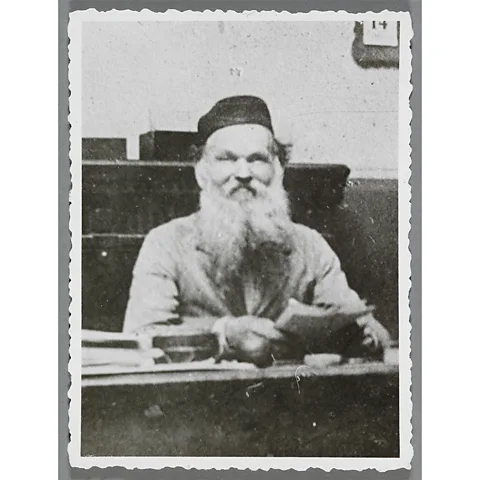 Credit: Van Gogh Museum, Amsterdam/ Courtesy Museum of Fine Arts, BostonA photograph of Joseph Roulin in 1902, two years after the death of his friend Vincent van Gogh (Credit: Credit: Van Gogh Museum, Amsterdam/ Courtesy Museum of Fine Arts, Boston)
Credit: Van Gogh Museum, Amsterdam/ Courtesy Museum of Fine Arts, BostonA photograph of Joseph Roulin in 1902, two years after the death of his friend Vincent van Gogh (Credit: Credit: Van Gogh Museum, Amsterdam/ Courtesy Museum of Fine Arts, Boston)Had Van Gogh not felt Roulin's unwavering support, he may not have survived the series of devastating breakdowns that began in December 1888 when he took a razor to his ear. With the care of those close to him, he lived a further 19 months, producing a staggering 70 paintings in his last 70 days, and leaving one of art history's most treasured legacies.
Like the intimate portraits he created in Arles, the exhibition courses with optimism. "I hope being with these works of art and exploring his creative process – and his ways of creating connection – will be a heartwarming story," Hanson says. Far from "shying away from the sadness" of this period of Van Gogh's life, she says, the exhibition bears witness to the power of supportive relationships and "the reality that sadness and hope can coexist".
Van Gogh: The Roulin Family Portraits is at the Museum of Fine Arts, Boston from 30 March to 7 September 2025, and at the Van Gogh Museum, Amsterdam from 3 October 2025 to 11 January 2026.
--
If you liked this story, sign up for The Essential List newsletter – a handpicked selection of features, videos and can't-miss news, delivered to your inbox twice a week.
For more Culture stories from the BBC, follow us on Facebook, X and Instagram.
ArtArt historyHistoryFeaturesWatch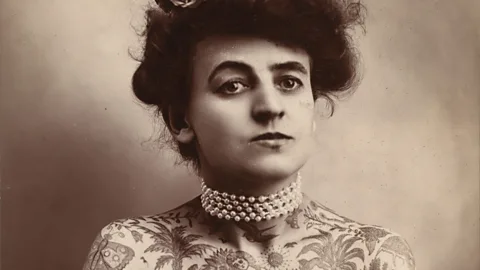 Why we're still talking about Maud Wagner
Why we're still talking about Maud WagnerHow America's first professional female tattooist broke through into an art form historically dominated by men.
4 Mar 2025History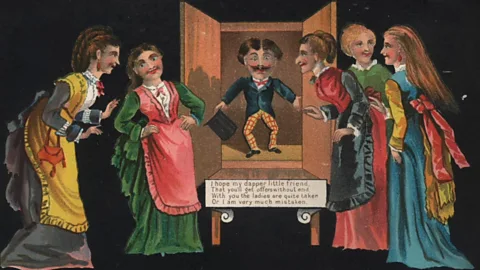 The insulting 'Vinegar Valentine' of Victorian England
The insulting 'Vinegar Valentine' of Victorian EnglandValentine’s Day is thought to celebrate romance but rude cards soured the holiday for its recipients.
14 Feb 2025History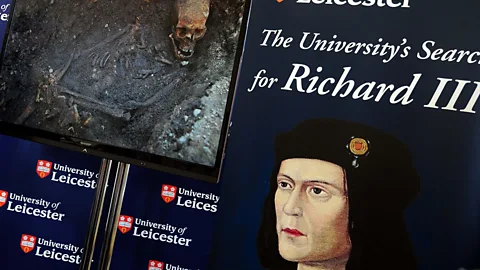 Richard III: The 'accidental' photo of a long-lost king
Richard III: The 'accidental' photo of a long-lost kingWhy a famous photograph of King Richard III's skeleton was a happy 'accident'.
11 Feb 2025History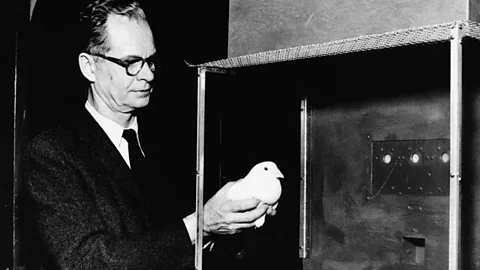 The WW2 experiment to make pigeon-guided missiles
The WW2 experiment to make pigeon-guided missilesAn unexpected WW2 experiment by behaviourist B F Skinner proved that pigeons could be used for missile guidance.
4 Feb 2025History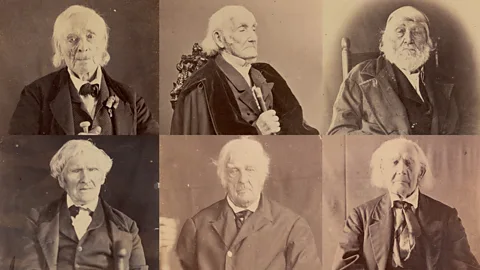 America's last Revolutionaries: Rare photos of US patriots
America's last Revolutionaries: Rare photos of US patriotsHow a dwindling group of veterans from the American War of Independence were featured in early photographic form.
7 Jan 2025History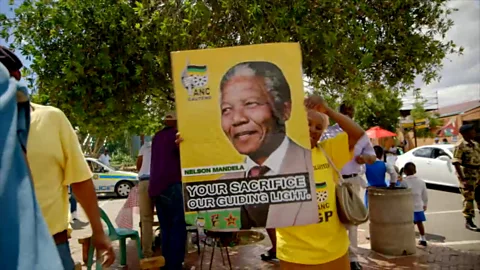 Idris Elba on moment he learned about Mandela's death
Idris Elba on moment he learned about Mandela's deathThe actor recalls being at the Mandela film premiere when he heard the anti-apartheid politician had died.
7 Dec 2024History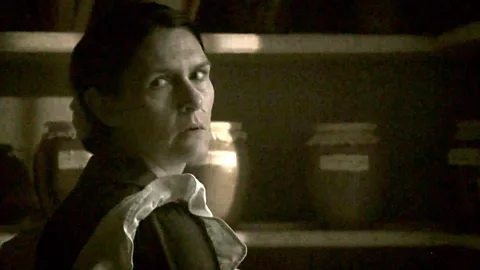 Mary Mallon: 'The most dangerous woman in America'
Mary Mallon: 'The most dangerous woman in America'How Mary Mallon, an Irish cook for New York's elite, became known as the 'most dangerous woman in America'.
17 Nov 2024History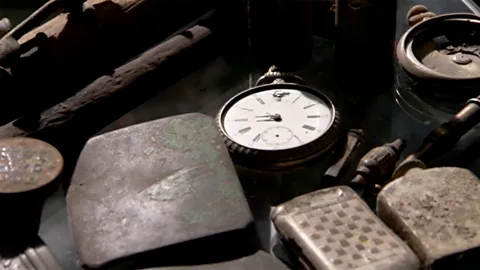 World War One relics live on in the fields of Europe
World War One relics live on in the fields of EuropeThe battlegrounds of World War One are still giving up their revealing evidence of bitter fighting.
12 Nov 2024History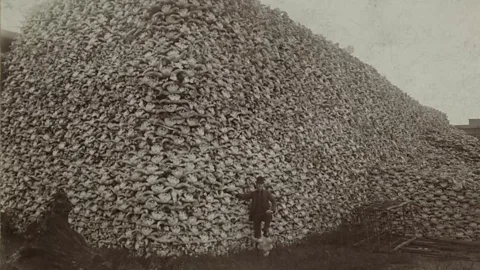 The picture that tells a lesser-known chapter of US history
The picture that tells a lesser-known chapter of US historyHow a 1892 photo from Rougeville, Michigan, became the most iconic image of the bison massacre in America.
22 Oct 2024History The history of swing states in the US
The history of swing states in the USThe US Presidential elections did not always depend on just these seven states.
21 Oct 2024History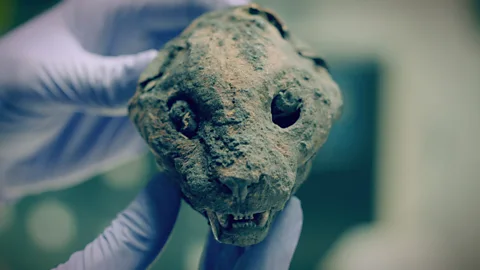 Why tonnes of mummified cats ended up in England
Why tonnes of mummified cats ended up in EnglandIn 1890 an estimated cargo of 180,000 ancient felines, weighing 19.5 tonnes, were auctioned off in Liverpool.
18 Sep 2024History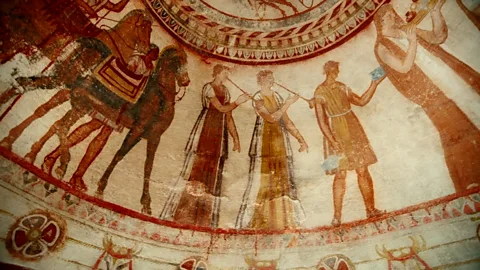 Inside the ancient royal tomb found by accident
Inside the ancient royal tomb found by accidentThe Thracian Tomb of Kazanlak was accidentally discovered by Bulgarian soldiers digging up shelters in 1944.
11 Sep 2024Archaeology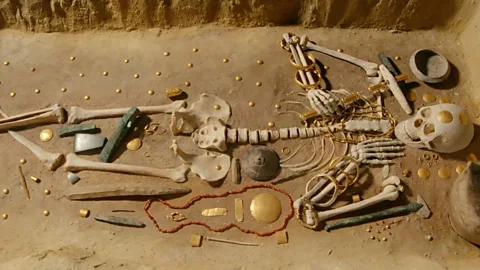 Varna Necropolis: World's oldest gold treasure
Varna Necropolis: World's oldest gold treasureThe Varna treasure is considered the world's oldest human processed gold, dating back 6,500 years.
10 Sep 2024Archaeology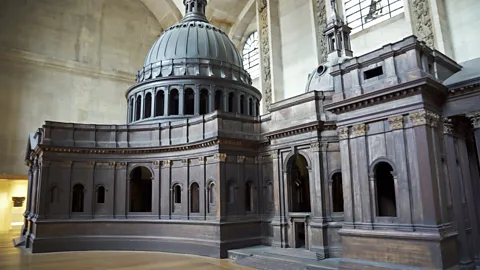 The giant 350-year-old model of St Paul's Cathedral
The giant 350-year-old model of St Paul's CathedralHiding in a London cathedral is an intricate wooden mock-up of Sir Christopher Wren's masterpiece.
5 Sep 2024History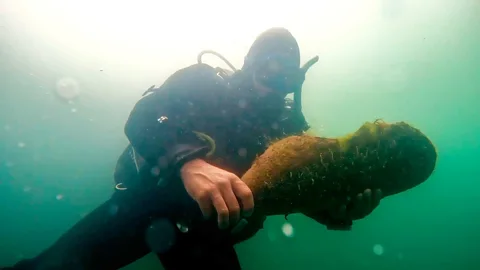 Uncovering the sunken relics of an ancient city
Uncovering the sunken relics of an ancient cityBettany Hughes goes underwater in search of ancient archaeological finds in historic Sozopol, Bulgaria.
4 Sep 2024Archaeology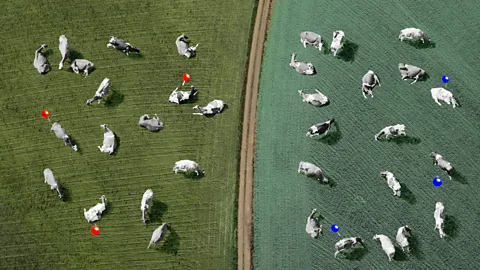 Texas fever: The lesser-known history of the US border
Texas fever: The lesser-known history of the US borderIn 1911, a fence was constructed on the US-Mexico border. But its purpose was not to stop humans.
18 Aug 2024History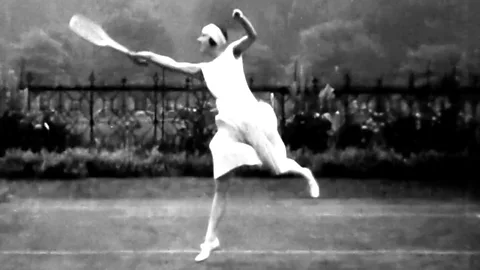 Century-old Olympics footage brought back to life
Century-old Olympics footage brought back to lifeA look through footage from the Paris 1924 Olympics gives viewers a chance to reflect on how much has changed.
9 Aug 2024Sport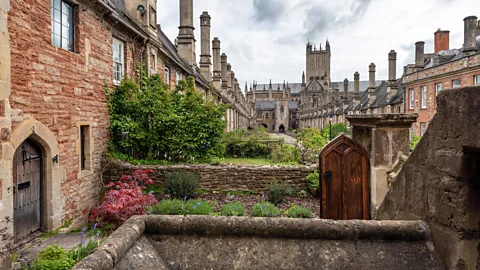 The rare medieval street about to reveal its secrets
The rare medieval street about to reveal its secretsOne of Europe's oldest residential streets hides in the heart of the English countryside.
23 Jul 2024History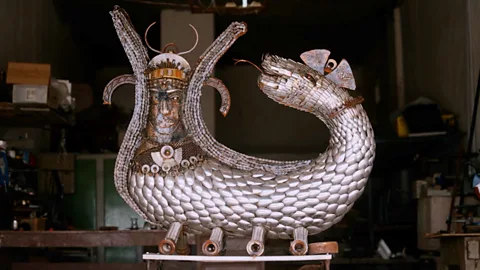 Shahmaran: The mythical symbol inspiring Turkish artists
Shahmaran: The mythical symbol inspiring Turkish artistsThe 'Shahmaran', half-woman and half-snake, is a mythical figure popular in the folklore of Turkey.
12 Jul 2024Art & Design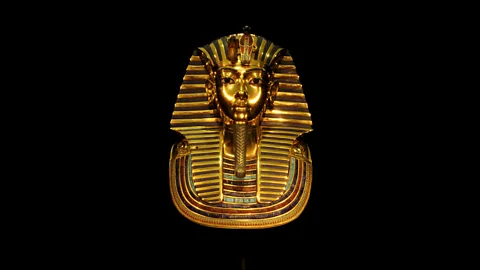 Tutankhamun: The first ever view inside the tomb
Tutankhamun: The first ever view inside the tombOne month after the famous discovery, photographer Harry Burton recreated the first view of Tutankhamun's tomb.
5 Jul 2024HistoryMore8 hrs ago Visiting Antarctica or the Arctic?
Visiting Antarctica or the Arctic?As polar tourism surges, experts warn of its environmental impact. From transport choices to local food, here's how to visit responsibly while protecting fragile ecosystems.
8 hrs agoTravel10 hrs ago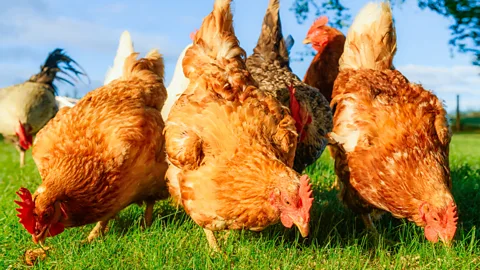 The French towns giving away chickens for free
The French towns giving away chickens for freeTowns in France and Belgium have been giving out free chickens for years to combat food waste – could the idea catch on elsewhere?
10 hrs agoFuture14 hrs ago National Trust in talks to run Heartlands site
National Trust in talks to run Heartlands siteEmpty since January 2014, there is now hope there could be a new operator for the site in Pool.
14 hrs agoCornwall1 day ago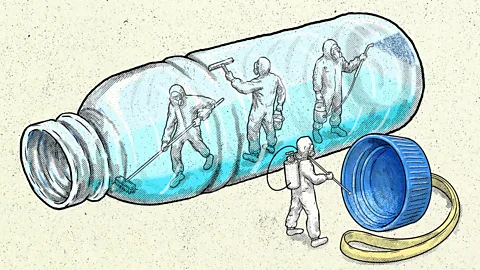 Are you cleaning your water bottle enough?
Are you cleaning your water bottle enough?Every time you take a sip from your water bottle, you are depositing bacteria inside and over the course of a day these can multiply by the millions. Should you be worried?
1 day agoFuture1 day ago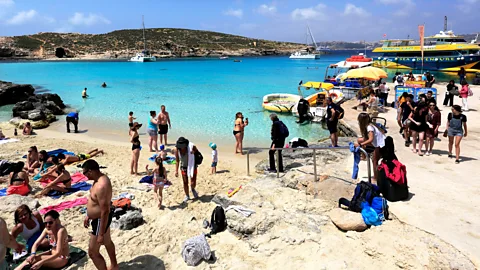 A new hope for Malta's 'hell on Earth'
A new hope for Malta's 'hell on Earth'The tiny Mediterranean paradise of Comino has long been overrun by tourists, many lured by social media to photograph its iconic Blue Lagoon. Now, the island is fighting back.
1 day agoTravelAP by OMG
Asian-Promotions.com |
Buy More, Pay Less | Anywhere in Asia
Shop Smarter on AP Today | FREE Product Samples, Latest
Discounts, Deals, Coupon Codes & Promotions | Direct Brand Updates every
second | Every Shopper’s Dream!
Asian-Promotions.com or AP lets you buy more and pay less
anywhere in Asia. Shop Smarter on AP Today. Sign-up for FREE Product Samples,
Latest Discounts, Deals, Coupon Codes & Promotions. With Direct Brand
Updates every second, AP is Every Shopper’s Dream come true! Stretch your
dollar now with AP. Start saving today!
Originally posted on: https://www.bbc.com/culture/article/20250317-the-surprising-story-of-van-goghs-guardian-angel?ocid=global_culture_rss
